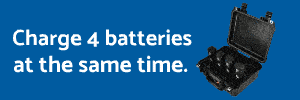Under the final rule, the person actually flying a drone must be at least 16 years old and have a remote pilot certificate with a small UAS rating, or be directly supervised by someone with such a certificate. To qualify for a remote pilot certificate, an individual must either pass an initial aeronautical knowledge test at an FAA-approved knowledge testing center or have an existing non-student Part 61 pilot certificate. If qualifying under the latter provision, a pilot must have completed a flight review in the previous 24 months and must take a UAS online training course provided by the FAA. The TSA will conduct a security background check of all remote pilot applications prior to issuance of a certificate.
You are using an out of date browser. It may not display this or other websites correctly.
You should upgrade or use an alternative browser.
You should upgrade or use an alternative browser.
FAA Requiring Pilot Certificate?
- Thread starter SteveAikens
- Start date
msinger
Approved Vendor
- Joined
- Oct 30, 2014
- Messages
- 31,962
- Reaction score
- 10,787
- Location
- Harrisburg, PA (US)
- Website
- phantomhelp.com
Yes, you still need a certificate. It's one that does not require flying a manned aircraft though.
N017RW
Premium Pilot
Man, I wonder if they can make this any more confusing.
Part 107 will not apply to model aircraft. Model aircraft operators must continue to satisfy all the criteria specified in Section 336 of Public Law 112-95 (PDF) (which will now be codified in Part 101), including the stipulation they be operated only for hobby or recreational purposes.
Part 107 will not apply to model aircraft. Model aircraft operators must continue to satisfy all the criteria specified in Section 336 of Public Law 112-95 (PDF) (which will now be codified in Part 101), including the stipulation they be operated only for hobby or recreational purposes.
- Joined
- Oct 11, 2013
- Messages
- 299
- Reaction score
- 85
If your talking about this license and instructions - you dont need to 'get it done' if your a hobby flyer. If thats a general question, you can get it done in nearly an unlimited amount of places: https://www.google.com/search?q=get...rome..69i57.4998j0j1&sourceid=chrome&ie=UTF-8Where can i get it done
WASHINGTON – Today, the Department of Transportation’s Federal Aviation Administration has finalized the first operational rules (PDF) for routine commercial use of small unmanned aircraft systems (UAS or “drones”), opening pathways towards fully integrating UAS into the nation’s airspace. These new regulations work to harness new innovations safely, to spur job growth, advance critical scientific research and save lives.From what I understand the "certificate" is for commercial drone use?
Sent from my iPhone using PhantomPilots mobile app
- Joined
- Oct 11, 2013
- Messages
- 299
- Reaction score
- 85
More pointedly - it is NOT for hobby or recreational use. FAA doesnt define commercial use as well.From what I understand the "certificate" is for commercial drone use?
Sent from my iPhone using PhantomPilots mobile app
- Joined
- Oct 11, 2013
- Messages
- 299
- Reaction score
- 85
WASHINGTON – Today, the Department of Transportation’s Federal Aviation Administration has finalized the first operational rules (PDF) for routine commercial use of small unmanned aircraft systems (UAS or “drones”), opening pathways towards fully integrating UAS into the nation’s airspace. These new regulations ... save lives.
Saves lives? WTF What lives are we saving? Has there EVER been loss of life from hobby or commercial UAS do to the lack of these new regs?
I would imagine that is in reference to being able to "eventually" be able to easily integrate UAS into Search & Rescue efforts. That is a HUGE priority across the country.Saves lives? WTF What lives are we saving? Has there EVER been loss of life from hobby or commercial UAS do to the lack of these new regs?
- Joined
- Oct 11, 2013
- Messages
- 299
- Reaction score
- 85
Well good luck with that. There are tons of license and 333 exemption threads already in this forum - your vague question and Frankenstienesk one line statement makes it a bit difficult to figure out what your going on about.That was absolutely no help.at all .i want profit from phantom
- Joined
- Oct 11, 2013
- Messages
- 299
- Reaction score
- 85
AH - well then that makes sense in that context. I thought there was already an exemption from the full regs for that?I would imagine that is in reference to being able to "eventually" be able to easily integrate UAS into Search & Rescue efforts. That is a HUGE priority across the country.
AH - well then that makes sense in that context. I thought there was already an exemption from the full regs for that?
Oh heavens no. You'd be shocked at the hoops we have to jump through and the red tape we limbo under to do a single SAR flight "by the rules". Put that flight on National Forrest or State Forrest land and you can easily double those efforts.
Note that the FAA can NOT make law - they can only make rules. They are limited in just how far they can go and how they can fine someone for violating those rules.
As to regulation of UAVs for search and rescue - that I am able to find, there is nothing regulating that use in the regulations. This link explains some of what they can and can not do. Granted, it's not really current, but little has changed since this was posted.
KEEP CALM: The FAA and sUAVs/Drone Rules (Final UPDATE) by Jeff Foster - ProVideo Coalition
As to regulation of UAVs for search and rescue - that I am able to find, there is nothing regulating that use in the regulations. This link explains some of what they can and can not do. Granted, it's not really current, but little has changed since this was posted.
KEEP CALM: The FAA and sUAVs/Drone Rules (Final UPDATE) by Jeff Foster - ProVideo Coalition
Note that the FAA can NOT make law - they can only make rules. They are limited in just how far they can go and how they can fine someone for violating those rules.
As to regulation of UAVs for search and rescue - that I am able to find, there is nothing regulating that use in the regulations. This link explains some of what they can and can not do. Granted, it's not really current, but little has changed since this was posted.
KEEP CALM: The FAA and sUAVs/Drone Rules (Final UPDATE) by Jeff Foster - ProVideo Coalition
My understanding is that this is now "Codified" into law. You'll need to consult an aviation attorney but I'm pretty sure once it's "posted to the docket" is will become code/law. This gives Part 107 some "teeth" if I understand it correctly.
NAs to regulation of UAVs for search and rescue - that I am able to find, there is nothing regulating that use in the regulations. This link explains some of what they can and can not do. Granted, it's not really current, but little has changed since this was posted.
Search & Rescue has always been considered "commercial" because it's well outside of "hobby/recreational" use. Therefore there are LOTS of regulations to deal with. I deal with it first hand more often than you'd believe.
If you contact NASAR they can guide you to the specifics but it's been written about several times. Here's just one article (it was the first link I clicked on) that touches on the topic.Any chance you can locate the regs that apply to S&R? I've been asked about it.
Search And Rescue Drones Illegal After FAA Enforces Policy
If you are interested in getting involved you'll want to contact your local EMS/SD and talk with them about what steps you need to take to help train and integrate with their groups. You'll want to take some basic NIMS (National Incident Management System) classes so that you understand how SAR work goes and you'll be able to become a part of the team and fit in smoothly. When the rubber hits the road and you go out on a live SAR mission you want to be smooth and polished because that's not the place to learn the ropes. It's crazy and super stressful to say the least.
Similar threads
- Sticky
- Replies
- 12
- Views
- 3K
- Replies
- 0
- Views
- 4K
- Replies
- 3
- Views
- 2K
- Replies
- 7
- Views
- 4K







